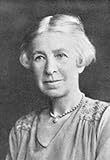Spirituality And The Practical Applications Of Meditation
Article by R.E. Darby
Our Spiritual Journey Through The World Of Things
I am often asked how I can separate meditation from spirituality and the answer of course is that I can't and don't. We are spiritual adaptations of life who are currently in physical form, therefore anything we do is spiritual. We don't normally think of practical activities being spiritual but when we consider that all reality springs from the fact that we are the only manifestation of life that we currently know of that is consciously self aware, then is it that difficult to realize that we are spiritual and that everything we do is spiritual?
If we apply meditation to the practical development of our capacity for attention or concentration or contemplation which in turn endows us with understanding of knowledge, are these not elements of our personal power? There is only one real power, and that is spiritual power, all else are the illusions of the untrained mind.
Yet I speak of the practical applications of these capacities, like concentration, because they are so useful in the physical world. For example; just concentration alone is a hugely valuable tool in the discernment of the objects and activities of the physical world, and the depth and completeness of our understanding of something is directly related to the depth and clarity of our ability to discern the fine details of that something. In other words, the extent and quality of our ability to concentrate on something, determines the level of understanding we may achieve about that something.
Meditation And Power Tools
Attention, concentration, contemplation and focus, are all power tools. Because they are tools, they can be applied to any subject, task or project. Where I believe the confusion comes in is when one person uses these tools for direct spiritual purposes, like developing ever deeper levels of spiritual consciousness and awareness, and the person who uses them for achieving goals in the physical reality, say for example in the a! rea of e ducational or business objectives. Same tool, different applications.
Why spiritual objectives are not considered practical is probably a can of worms that I am not prepared to open at this time, though it is an interesting question. But for simplicity sake I will maintain the differentiation. Also, I consider meditation itself a tool that helps us learn how to use other tools both practical and spiritual. While it may be a difficult tool to learn how to use correctly, its versatility is incredible when you free it from the stereotype perception of organized religion.
Do not be blinded by the spiritual and even mystical concepts that are traditionally associated with meditation, even if you don't believe that we are spiritual beings, you don't need to in order to take advantage of the great power and practical applications of meditation.
If you are interested in further information on meditation techniques check out this free audio e-course
About the AuthorRobert Darby is a self change and personal development specialist who writes for many organizations including The Agenda Of Life Foundation He focuses on developing personal power since that is usually the cause of all Human problems. Robert takes a practical approach in that he looks at the varioustools and techniques out there that are designed to help us achieve our mental, spiritual and emotional goals.
NLP & Spiritual Consciousness - Kundalini Part 3

Mysticism: A Study in Nature and Development of Spiritual Consciousness
 Long considered a classic and essential work on the subject of mysticism, Evelyn Underhill presents her insightful and original theories on the nature of the mystic state. Underhill bases her examples primarily on Christian Saints, but she also mentions mystic examples in Sufism, Hinduism, Buddhism, and other religious belief systems. The book is divided into two sections, "The Mystic Fact" and "The Mystic Way." The Mystic Fact explores the theological, psychological, and philosophical aspects of mysticism, and The Mystic Way explores applied mysticism as a means for spiritual growth. A must read for any student of spirituality, and higher states of consciousness.
Long considered a classic and essential work on the subject of mysticism, Evelyn Underhill presents her insightful and original theories on the nature of the mystic state. Underhill bases her examples primarily on Christian Saints, but she also mentions mystic examples in Sufism, Hinduism, Buddhism, and other religious belief systems. The book is divided into two sections, "The Mystic Fact" and "The Mystic Way." The Mystic Fact explores the theological, psychological, and philosophical aspects of mysticism, and The Mystic Way explores applied mysticism as a means for spiritual growth. A must read for any student of spirituality, and higher states of consciousness.Long considered a classic and essential work on the subject of mysticism, Evelyn Underhill presents her insightful and original theories on the nature of the mystic state. Underhill bases her examples primarily on Christian Saints, but she also mentions mystic examples in Sufism, Hinduism, Buddhism, and other religious belief systems. The book is divided into two sections, "The Mystic Fact" and "The Mystic Way." The Mystic Fact explores the theological, psychological, and philosophical aspects of mysticism, and The Mystic Way explores applied mysticism as a means for spiritual growth. A must read for any student of spirituality, and higher states of consciousness.
List Price: $ 0.99 Price: $ 0.99


Comments
Post a Comment